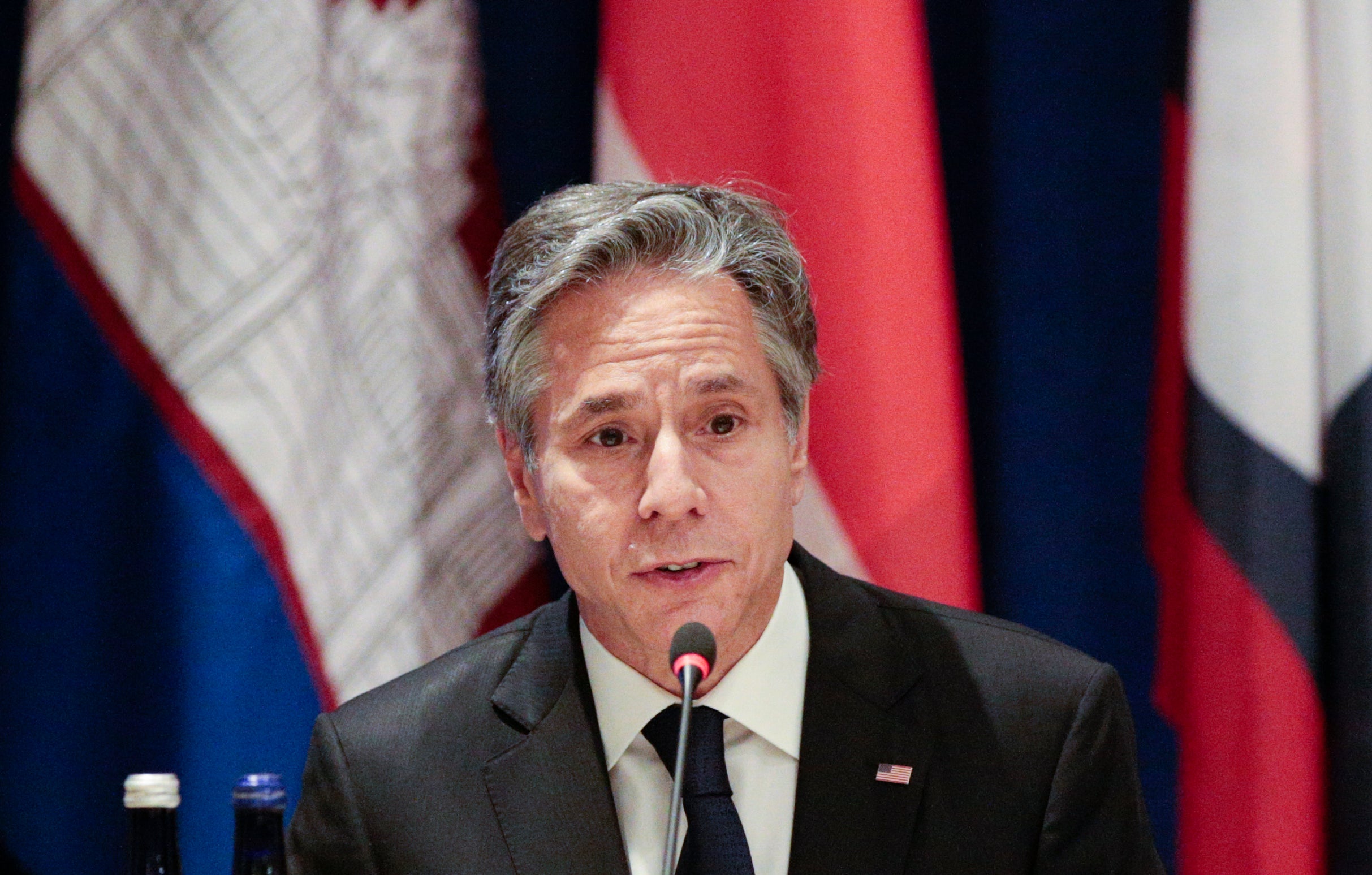US implores Iran to return to nuke talks without delay
The Biden administration is imploring Iran to quickly return to talks on its nuclear program after a three-month hiatus caused by its government transition

Your support helps us to tell the story
From reproductive rights to climate change to Big Tech, The Independent is on the ground when the story is developing. Whether it's investigating the financials of Elon Musk's pro-Trump PAC or producing our latest documentary, 'The A Word', which shines a light on the American women fighting for reproductive rights, we know how important it is to parse out the facts from the messaging.
At such a critical moment in US history, we need reporters on the ground. Your donation allows us to keep sending journalists to speak to both sides of the story.
The Independent is trusted by Americans across the entire political spectrum. And unlike many other quality news outlets, we choose not to lock Americans out of our reporting and analysis with paywalls. We believe quality journalism should be available to everyone, paid for by those who can afford it.
Your support makes all the difference.The Biden administration is imploring Iran to quickly return to talks on its nuclear program after a three-month hiatus caused by its government transition, warning that the window for negotiations may soon close.
A senior administration official said Thursday that U.S. patience is wearing thin and that further delays while Iran continues to expand its atomic capabilities could lead Washington and its partners to conclude a return to the landmark 2015 nuclear deal is no longer worthwhile.
The official, who briefed reporters on condition that he not be identified by name, spoke as diplomats from the remaining parties to the agreement have been meeting Iran’s foreign minister on the sidelines of the annual U.N. General Assembly to gauge Tehran’s willingness to return to the talks in Vienna.
While Iran has said it is ready to rejoin the talks, it has not yet offered a date for a resumption, named a negotiating team or indicated that it is willing to pick up where the negotiations left off in June, according to the U.S. official.
In discussions with representatives from the remaining parties to the deal — Britain, France, Germany, Russia, China and the European Union — the official said all of them had agreed on the importance of resuming the talks as soon as possible.
If the talks don't resume, the official said the U.S. would at some point determine that Iran was no longer interested in the benefits that the accord offered or that its recent technological advances could not be undone by the limits it imposed.
The UN's atomic watchdog has said Iran is increasingly in violation of the deal, known as the Joint Comprehensive Plan of Action or JCPOA, which former President Donald Trump withdrew the U.S. from in 2018. The U.S. has participated indirectly in the Vienna talks, which were aimed at bringing both Washington and Tehran back into compliance with the deal.
The EU's top diplomat, Josep Borrell met Tuesday with Iran's new foreign minister, who reiterated Tehran’s “willingness to resume negotiations at an early date," the EU said. Borrell met Wednesday with U.S. Secretary of State Antony Blinken.
Borrell stressed “the need for full cooperation” from Iran and reiterated his concern about the overall trajectory of the Iranian nuclear program,” the EU statement said.
The last round of talks in Vienna ended in June, ahead of Iran’s elections that boosted the ranks of hard-liners. There had been speculation that the remaining parties to the deal would meet on the sidelines of this week’s U.N. General Assembly. But the U.S. official said Iran had declined the opportunity to meet.